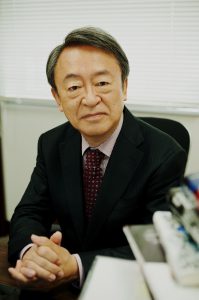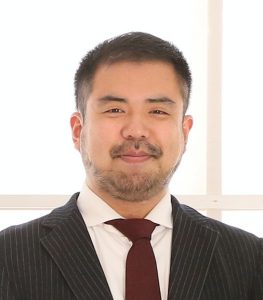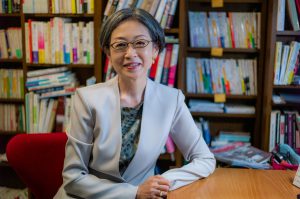FY2023 1st International FPCJ Webinar: The Role of Media and Reader Literacy in the Age of Generative AI—Thinking on the Future of Reporting with Foreign Media Correspondents

Since Open AI released ChatGPT in November 2022, the use of generative AI that can create a variety of content has rapidly spread worldwide. With Japan facing a severe labor shortage due to its declining birthrate and aging population, increased efficiency and productivity are critical issues in various industries, and AI and robotics have already become indispensable. How to use these technologies and how to coexist with AI has become a social issue.
Some outlets for legacy media such as newspapers and TV have been encountering difficulties in maintaining their reporting activities due to reduced income and a lack of sufficient journalists to respond to the rise of online media prioritizing speed of reporting above all else. According to a survey of journalists and editors on the use of generative AI tools in the newsroom carried out by the World Association of News Publishers (WAN-IFRA) in collaboration with SCHICKLER Consulting*, nearly half of respondents stated that generative AI tools were already being used in some way. As the use of AI in the media industry continues to expand, what effect will it have on journalists’ jobs?
This international webinar will invite Japanese correspondents from Western media, which has been closely following generative AI, as well as members of the Japanese media and an expert on the topic, to discuss how, with innovations in AI, journalists’ jobs will change, what roles journalists will be expected to play, and what readers and viewers should keep in mind when encountering news content.
Webinar Format
Session 1: Use of AI by Media and Points of Concern
Currently, AI has begun to be used in a variety of areas at media organizations, including gathering information, creating news, and distributing news. Although the convenience of AI is what is drawing the most attention, there are also concerns about ensuring the reliability of articles made by AI, and news organizations have to consider how AI will be used. This session will discuss the benefits and points of concern regarding the adoption of AI.
Session 2: How Will AI Change the Media—Future Media and Reporting
Generative AI can make it possible to cover events in niche areas where it was previously not possible due to human resource limitations, allowing for people to be made aware of a wider variety of news than ever before. However, it would be very difficult for it to find news that has not yet been reported on or to ask appropriate questions of interview subjects. Readers and viewers will also need to properly understand the characteristics of AI, and be prepared to determine what reporting is legitimate. This session will discuss the approach readers should take to information, and the value of reporting done by humans.
Outline
1.Date and Time
15:00–17:00, Monday, October 30, 2023
2. Format
Online only (Zoom webinar)
3. Languages
English/Japanese (simultaneous interpretation)
*Note: Depending on the panelist, they will speak either English or Japanese, with simultaneous interpretation for both languages. In order to use the simultaneous interpretation function, be sure to install the Zoom application ahead of time (if you connect via browser, the icon for interpretation will not be displayed).
4. Support
Ministry of Foreign Affairs, Nikkei Inc.
5. Cost
Free
6. Program and Panelists
| 15:00-15:07(7 min) |
Opening remarks |
Kazuo Kodama (FPCJ President) |
| 15:07-15:47(45 min) |
Session 1 (initial statements, discussion, summary) |
All panelists and moderator |
| 15:47-16:27(45 min) |
Session 2 ((initial statements, discussion, summary) |
All panelists and moderator |
| 16:30-16:50(20 min) |
Q&A |
All panelists and moderator |
| 16:50-17:00(10 min) |
Overall summary |
All panelists and moderator |
| 17:00 |
Closing remarks |
Kazuo Kodama (FPCJ President) |
◆Moderator
 Akira Ikegami, Professor, Meijo University; Institute Professor, Tokyo Institute of Technology; Freelance Journalist
Akira Ikegami, Professor, Meijo University; Institute Professor, Tokyo Institute of Technology; Freelance Journalist
Joined NHK in 1973. After working as a news reporter and anchor, left in 2005. Since then, he has been active as a freelance journalist in television, newspapers, and magazines. His recent book, Ikegami Akira ga Taisetsu ni Shiteiru Tate no Sozoryoku to Yoko no Sozoryoku [What Akira Ikegami Values: Vertical Imagination and Horizontal Imagination] (Kodansha+α Shinsho), includes comparisons and commentary on humans and generative AI. An FPCJ Council Member since 2021.
 ◆Panelists
◆Panelists
Foreign Media
Tim Kelly, Senior Correspondent, Reuters Tokyo Office
Born in the UK. From 2000, worked at the Bloomberg Tokyo office covering the Prime Minister’s Office. Later became the Tokyo bureau chief for Forbes before assuming his current role in 2010. As a senior correspondent, in addition to covering foreign affairs and security he also actively covers science and technology. Also appears as a commentator on Japanese news programs.
Reed Stevenson, Senior Editor, Bloomberg Tokyo Office
 Born in the US, raised in Japan. Joined Reuters in 1996 in Tokyo as a correspondent, then was bureau chief in Seattle, Amsterdam and for the Gulf region, based in Dubai. Joined Bloomberg’s San Francisco office in 2012, before moving back to Japan in 2016 for his current role. He has been editing and writing articles on technology and business (corporate news and investing) at Bloomberg News for more than a decade.
Born in the US, raised in Japan. Joined Reuters in 1996 in Tokyo as a correspondent, then was bureau chief in Seattle, Amsterdam and for the Gulf region, based in Dubai. Joined Bloomberg’s San Francisco office in 2012, before moving back to Japan in 2016 for his current role. He has been editing and writing articles on technology and business (corporate news and investing) at Bloomberg News for more than a decade.
 Japanese Media
Japanese Media
Akira Oikawa, AI Quantum Editor, The Nikkei
Joined Nikkei Inc. in 2005. After primarily covering science and technology reporting on topics such as climate change and nuclear power, he began writing articles on cutting-edge technology such as artificial intelligence (AI) and quantum computers. After studying in the US, began his current role in 2020.
Expert
Kaori Hayashi, Executive Vice President, The University of Tokyo; Professor, Graduate School of Interdisciplinary Information Studies, The University of Tokyo
 After being a journalist at the Reuters Tokyo office (1988–1991), an assistant professor at the Institute for Socio-Information and Communication Studies of the University of Tokyo, and a research fellow at Hamburg University (via the Alexander von Humboldt Foundation), began working at the University of Tokyo in 2004. Was director of the B’AI Global Forum in the AI and Society section of the Institute for AI and Beyond at the University of Tokyo (2020–2022), and since 2021 has been Executive Vice President of the University of Tokyo (Diversity and Global Affairs).
After being a journalist at the Reuters Tokyo office (1988–1991), an assistant professor at the Institute for Socio-Information and Communication Studies of the University of Tokyo, and a research fellow at Hamburg University (via the Alexander von Humboldt Foundation), began working at the University of Tokyo in 2004. Was director of the B’AI Global Forum in the AI and Society section of the Institute for AI and Beyond at the University of Tokyo (2020–2022), and since 2021 has been Executive Vice President of the University of Tokyo (Diversity and Global Affairs).
*Program details, times, and panelists are subject to change without notice.
7. How to Register
Register using the URL below:
https://us02web.zoom.us/webinar/register/WN_AEQVRPy-RG-xQPlqpyE4qw
*An automatic confirmation email with a link to the webinar will be sent from no-reply@zoom.us immediately after applying. If you do not seem to have received this email, check your spam and trash folders. If you cannot find it, please contact us as indicated below.
*We will inform by email all those who have registered about a video of the webinar. Even if you cannot participate live on the day of the webinar, please consider registering.
Contact Information
Sato (Ms.),Ishida (Ms.)
Media Communication and Planning Division
Foreign Press Center Japan
sympo@fpcjpn.or.jp | 03-3501-5251
~ About FPCJ International Webinars ~
Two or three international webinars are held by the FPCJ each year, as unique projects representing our role in acting as a bridge between Japan and members of the foreign media. Through these webinars, we will create opportunities to hear the perspectives of foreign correspondents who are active in reporting on Japan, discussing topics that are important not just to Japan, but to the international community as a whole.


